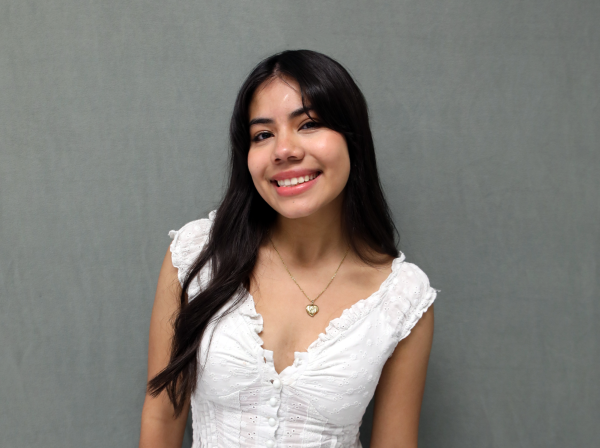The alarm rings. It’s time to get ready for school. Only, this isn’t the average educational experience. Miles from home, living with a host family, in a different country with a different educational system, these students have decisively chosen a less ordinary academic path.
Through a variety of different programs, students from all across the globe become part of the Vandegrift student body. This year, junior Elin Song, an exchange student from Korea, attends VHS as a part of the Program of Academic Exchange (PAX).
“In Korea, we have home teachers, so our classes don’t change,” Song said. “Here, everyone is moving from class to class, so it was really different. Studying was easier here than in Korea, because Korean studies are really difficult, but here there’s more focus on fun and relationships with friends.”
In addition to Song, juniors Lennart Hoeld and Lennart Stange, joined Vandegrift as German exchange students. Both students underwent a rigorous application process in order to join their respective programs. Stange’s application was part of a government-led initiative named the Congress-Bundestag Youth Exchange
“It’s a very long process,” Stange said. “You wait for two months or so because it’s government related, so it’s a lot of bureaucracy you have to do. If you get in, an interview with a German politician [will follow].”
Upon receiving acceptance to the exchange program, Stange spent two days in Washington, D.C., where he learned about the United States’ government structure. Afterwards, he traveled to Austin, TX, his new home for a year.
“I really like [my host family],” Stange said. “They’re very cool guys. I think from time to time, you feel like a guest and not like a family member. Of course, you have some small issues from time to time, but they’re not that big.”
Although Song, Hoeld, and Stange all are part of different foreign student exchange programs, they all live with assigned host families who are part of the Vandegrift community, with most of them having a student who also attends school here. Host families will usually provide housing, transportation and other necessities for the exchange student.
“I changed my host family by the time I was here because it wasn’t a good match with the first one,” Hoeld said. “I have a host brother [who is] also a junior. It helps a lot because he is driving me here every single day [and] he can connect me to new people too.”
All three exchange students have had the opportunity to meet new people through different experiences and extracurricular activities. Song participates in the theater program, while Stange participates in band and Hoeld participates in a weekly youth group.
“Theater club was so much fun because there were a lot of friends and they welcomed me really kindly,” Song said. “It was a really good experience, because Korea doesn’t have clubs this big.”
In addition to the learning experiences through clubs, the foreign exchange program can also bring a particular set of challenges, with the most prominent one being an adjustment in languages.
“[The hardest part of being here] is English,” Song said. “English is not my first language, and Korean and American sentence structures are totally different, and vocabulary is really hard.”
Nevertheless, Song overcame these language challenges by making use of digital tools such as Google Translate or asking friends about the meaning of a word or expression. Beyond language, however, other challenges arise.
“I think for most of the exchange students, it’s pretty challenging to be all by yourself, too,” Hoeld said. “Without parents around, or anyone. I think being independent is a big thing that you have to deal with, because you are all by yourself figuring stuff out. And, being open to everything [and being] spontaneous is probably the biggest thing.”
Aside from the complications that present themselves in a foreign country, the exchange program allows students to fully immerse themselves in American culture and learn about traditions and customs in the United States.
“I’m very interested in American culture, because I see it a lot in movies and I wanted to experience it on my own,” Stange said. “One of the biggest things I’ve learned studying here is that [stereotypes] are not a real thing. I thought at first, Texas was only like people who speak weird [and] wear cowboy hats, but it’s definitely not that way. And I’ve learned from my experience here that [they are] very amazing.”
There are other aspects of the cultures that differ from American culture to each foreign student’s home country’s customs and traditions. For instance, Song describes how Koreans greet each other with a bow, while Americans greet each other with a wave. In addition, there are other differences in the overall attitudes of each culture.
“German people are more harsh,” Stange said. “Germans are coconuts, hard outside, soft inside. Americans are peaches, soft outside, hard inside. I think that really represents that very well, because Germans are harder to get into conversations with, but if you get in a conversation with a German he remembers you and he knows you afterwards.”
One of the least favored aspects of American culture, however, was the food, as all three of the students describe missing the food in their home countries for different reasons, including taste and nutrition.
“The worst thing is probably the food,” Hoeld said. “I like some fast food chains and stuff, but it’s so unhealthy. [In Germany] it’s a lot healthier. There are some food aspects I miss.”
Although there are aspects to be missed from their respective home countries, these exchange students explain that this experience has allowed them to learn new skills and gain knowledge about other cultures.
“My recommendation for everybody is to try a student exchange [program],” Stange said. “It’s actually more fun than a lot of people think. And it doesn’t need to be a year, for some people, that’s too much, but, even two weeks can be enough to experience something else, and I think it’s something that really opens your mind and makes you a better person.”



